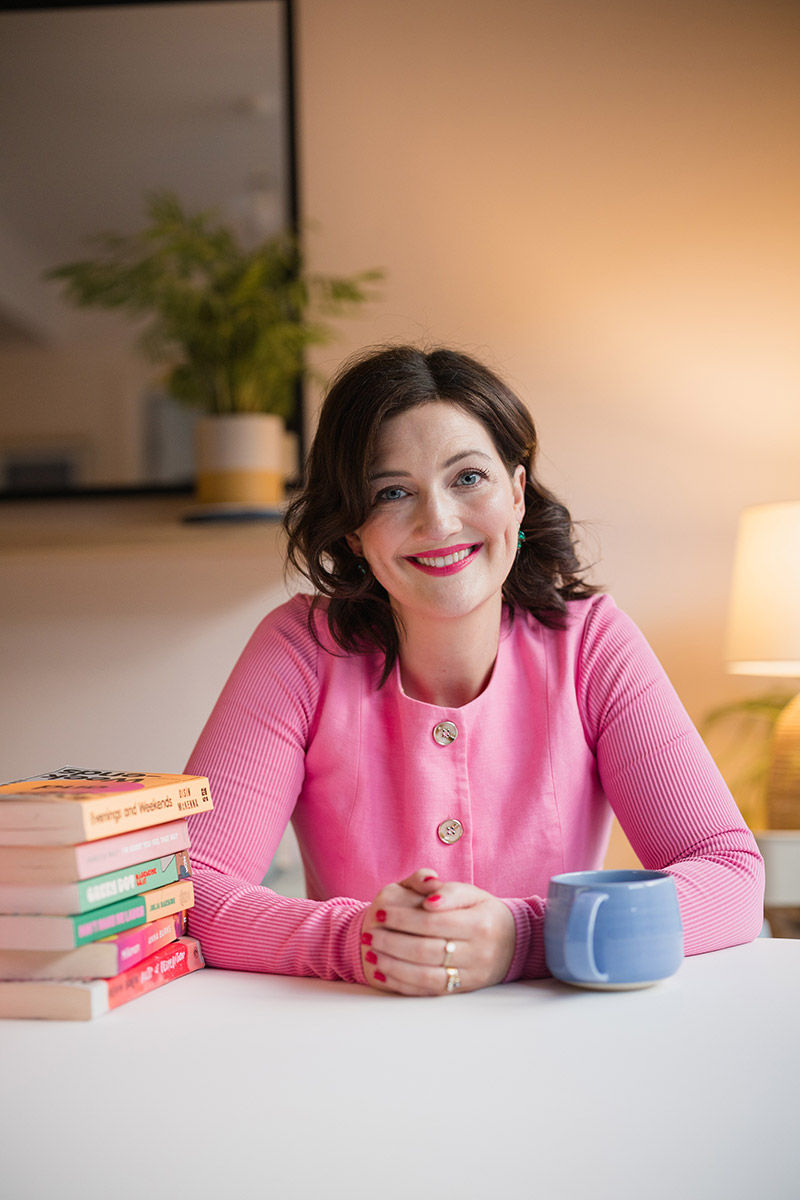Sisterly one upmanship or sisterly love in a divided country - Jeananne Craig delves into ‘wife swap’ terrain and relishes the messy bits with real bite
- CWIP
- Oct 12, 2025
- 3 min read

Can you tell us about the brilliant ‘Some News’ in one sentence?
'Some News' is about two very different sisters from Derry: Sarah, a stressed single mother now living in Dublin, and Sinead, a Belfast-based (and freshly unemployed) party animal, who end up swapping lives and cities temporarily... conflict, connection and chaos ensue!
What inspired you to create this genre where sisters swap lives?
Do you remember the TV show 'Wife Swap'? Some News is a bit like that, but with sisters and minus the cameras. I loved the idea of these fractured sisters, whose lives have gone in very different directions, stepping into each other's shoes and either repairing their relationship, or completely destroying it.
I think a lot of people have been through phases where they've been overburdened with responsibilities, like Sarah, or gone a bit off the rails, like Sinead, and feel like something needs to change. For Sarah, it's the opportunity to resurrect her acting career through a big film role in Belfast, and for Sinead, it's a chance to right past wrongs with her sister - and enjoy a wee extended holiday in Dublin... how hard can it be to babysit six-year-old twins?
I also thought readers like myself, whose lives now resemble sensible Sarah's more than wild Sinead's, might enjoy reading about a mother getting a break from daily duties!
How important is humour used – as a way to connect with the reader, especially as your sisters end up with a deeper connection?
Coming from Derry, humour is part of our DNA, even in the most challenging times (the incredible 'Derry Girls' was spot on). Strong, funny, working-class women have always been the backbone of our city, so it was really important to me that the novel reflected that.
Sarah and Sinead have never got over the trauma of their mother dying, and their relationship has never recovered either. But even in their darkest moments, or their most blazing rows, that black humour comes through and punctures the tension.
Me and my own sister (who I have a great relationship with) have a favourite saying, courtesy of Dolly Parton in Steel Magnolias: "Laughter through tears is my favourite emotion". There's always comedy and absurdity to be found in challenging situations, and in the everyday mundanities of life. I think that's something readers from anywhere in the world can relate to - even if they've never been to an Irish wake.
Which witty novel inspired you the most growing up?
Good Behaviour by Molly Keane. A camp satire of the Anglo-Irish gentry with an unconventional, ungainly anti-heroine and some deadly rabbit mousse. I remember finding a dusty, dog-eared copy of it in the house on a rainy day and being hooked from page one. I'd never read something so sophisticated and so skewering.
How long have you wanted to write and finish a manuscript? Where do you write? Do you take coffee breaks or stick to water /wine/other? Any writing habits gratefully received.
'Some News' is the first novel I've written. I was always writing stories and plays as a child, but stopped in my teenage years. I decided to start scratching that long-held itch a couple of years ago. Writing creatively again feels like being reunited with a much-loved childhood friend, and finding the joy and magic is still there.
I wish I could say I had a really disciplined approach where I rise at 5am, light candles, dip a quill in ink and stick to a 1,000 word a day target, but it's a lot scrappier than that – carving out time between school runs, the day job etc. That said, I think the chaos of everyday life can be beautiful and provide lots of ideas, particularly when writing comedy.
Coffee does feature heavily and I'll sometimes take my laptop out to a local café (shout out to Gráft and Scarpello in Derry) in the hope that inspiration will strike somewhere there isn't a laundry basket in my eyeline. I'd recommend joining a writing group to keep yourself accountable and connect with other writers - I'm part of a lovely local one, called This Writing Thing.
Finally, can you tell us why you think CWIP is important?!
Funny writing, and funny women, don't always get the credit and recognition they deserve. CWIP does a remarkable job of championing women authors at all stages of their writing careers, 'throwing the ladder back down' to uplift others, and celebrating the unifying power of humour. On a personal level, it's been a gorgeous confidence boost. Writing can be a very solitary pursuit, so to feel part of this sisterhood of incredible, witty writers is something really special and joyful. Thank you CWIP!
If you could offer support we would love you to press the button below - so we can keep going!



